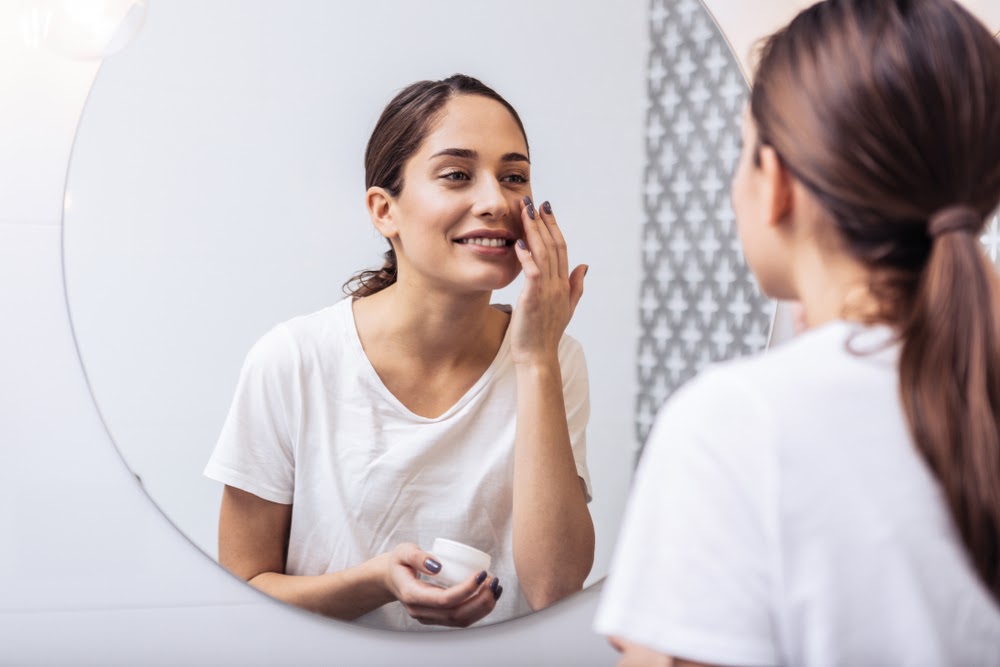The dry chill of late fall and winter can have adverse effects on your skin. After the humidity of summer disappears, the days are drier, which can result in itchy skin, chapped lips, and all kinds of other irritations. But there are simple steps you can take to protect yourself and maintain your skin’s health.
Here are a few suggestions for Protect Your Skin During the Fall.
Moisturize every day
Moisturizing your skin—and your hands in particular—will help to protect it from dryness and irritation during the colder months, when there’s less moisture in the air.
Instead of using a lotion, opt for a cream or ointment, as these thicker formulas can serve you better in the winter months. Rub the moisturizing cream or ointment on your skin right after washing your hands or taking a shower in order to trap the moisture.
Wear sunscreen
Just because summer has passed doesn’t mean you should pack away the sunscreen. The sun still comes out in the fall and the winter and, if you live in a place where it snows, its rays can be intensified by reflecting off the fallen snow.
Even on cloudy days, the sun’s UV rays can still produce harmful effects on your skin, such as burns, wrinkles, and an uneven skin tone. So if you plan on spending a long time outdoors, put on some SPF 15 at the minimum.
Limit the amount of time spent in hot showers
Even if it’s cold out, try and resist the urge to indulge in long, hot showers. These are detrimental to your skin, as they can strip it of its natural oils. Ideally, you should be taking a lukewarm shower that lasts for a maximum of ten minutes.
An even easier way to prevent skin irritation from hot water is to wash your hands using cool water. Many experts suggest that cool water does just as good a job as hot water in fighting germs, and it’s easier on your skin.

Use quality skincare products
During any given time of the year, you should be careful about the kinds of skincare products you use. But it’s especially important during the fall and winter, when your skin is more prone to drying out.
Going into the winter, you may have to switch up your skincare routine so that it’s appropriate to the climate. Avoid products that contain alcohol or fragrances, as these can rob your skin of the natural oils it contains to keep itself moisturized. Instead, try using non-oil-based, fragrance-free products.
Minimize time spent in wet clothing
In the fall, it can be easy to get caught in the rain. Maybe you forgot your jacket that day or you didn’t expect it to rain at all. Regardless, if you get wet you should change out of those wet clothes as soon as you can.
Not only does wearing wet clothes increase your chances of getting sick, it can also cause itchiness and irritation on your skin. If you live in a place where it’s constantly raining, you might consider packing an extra set of dry clothes in your car or at your workplace just in case.
Forget the tanning bed
While an artificial tan might make you glow in the short-term, it can have damaging effects on your skin in the long-term. Using tanning beds can result in cell damage and increase your risk of contracting skin cancer.
Thus, the tanning bed is a less than ideal replacement for the sun if you’re looking to get your daily dose of vitamin D. Instead, look for self-tanning lotions that are less harmful for your skin, and take a supplement to get your vitamin D fix.
Avoid irritating fabrics
When layering up for the cold, avoid wearing fabrics that bother and irritate your skin. Rough fabrics like wool are notorious for having an adverse effect on your skin, causing itching and other irritations. For some people, the same is true for clothes made from synthetic fibers like polyester, nylon, and spandex.
So be careful about what kind of material is making direct contact with your skin. Layer rough, heavy materials over light, breathable clothing for optimal comfort.
Just because the seasons change doesn’t mean your skin has to suffer. Remember that the more you take care of your skin now, the better it will look in the future.



